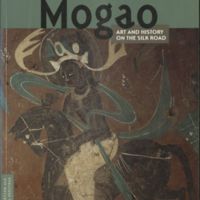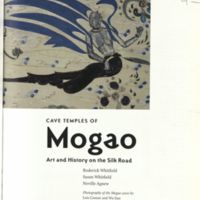Cave Temples of Mogao: Art and History on the Silk Road
Dublin Core
Title
Cave Temples of Mogao: Art and History on the Silk Road
Description
"The Mogao cave temples on China's fabled Silk Road constitute one of the world's most significant sites of Buddhist art. Founded by monks as an isolated monastery in the late fourth century, Mogao evolved into a spiritual and artistic mecca renowned throughout China and central Asia. Here, in some five hundred caves carved into rock cliffs at the edge of the Gobi Desert, was preserved the pageantry of one thousand years - miles of wall paintings, more than two thousand statues, magnificent works on silk and paper, and tens of thousands of ancient manuscripts." "Cave Temples of Mogao tells the fascinating story of this remarkable site and of nearby Dunhuang, desert gateway to China. It also describes the long-term collaboration between the Getty Conservation Institute and Chinese authorities to preserve the Mogao shrines."--Jacket.
Creator
Roderick Whitfield
Publisher
Los Angeles : Getty Conservation Institute and the J. Getty Museum
Date
2000
Contributor
Susan Whitfield, Neville Agnew ; photography of the Mogao caves by Lois Conner and Wu Jian
Relation
Series: Conservation and Cultural Heritage Series
Table Of Contents
At the Desert Gateway to China -- The Blazing Beacon -- Lost Treasures of the Silk Road -- The Peerless Caves -- Temples of the Pure Lands -- A Millennium of Murals -- Conserving the Heritage of Mogao -- Monasteries, Monks, and Manuscripts -- The Art Gallery in the Desert.
Text Item Type Metadata
Original Format
Book
Citation
Roderick Whitfield, “Cave Temples of Mogao: Art and History on the Silk Road,” Humanities Hub, accessed February 24, 2026, https://humanitieshub.sdsu.edu/omeka/items/show/1889.


